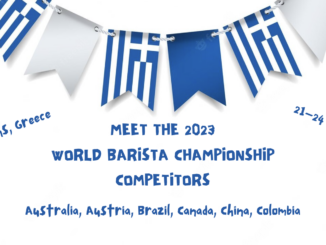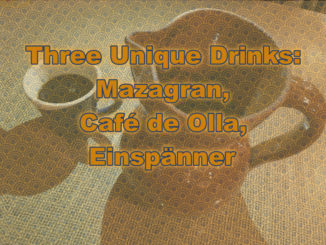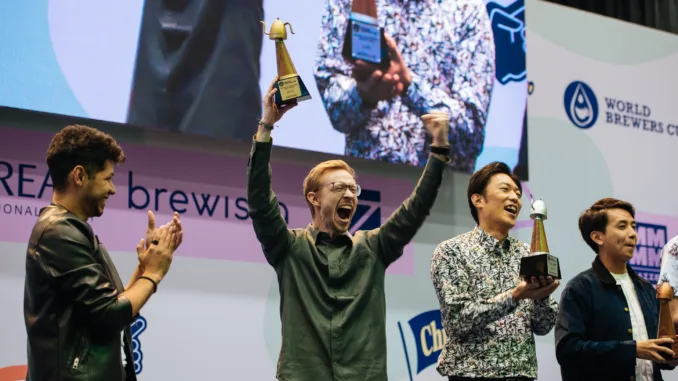
We get to know the recently crowned World Brewers Cup Champion.
BY J. MARIE CARLAN
BARISTA MAGAZINE ONLINE
Featured photo by Olivia Blinn
Martin Wölfl has been deeply involved in the specialty-coffee world for years, between competition successes, serving as managing director of Wildkaffee, and leading his organic cold-brew company, 25 GRAMS. In addition to multiple Austrian Brewers Cup Championship wins, he has also competed in Cup Tasters competitions, placing first in Austria last year.
During his World Brewers Cup Championship performance in Chicago in April, Martin used a micro-lot from Panama with notes of honeydew, cherry, and pineapple, to great effect. His routine focused on six brewing innovations that helped him achieve a fantastic cup using quicker extraction.
In the first part of our chat with Martin, we discuss representing his country, choosing his coffee, and more.
This interview has been edited for length and clarity.
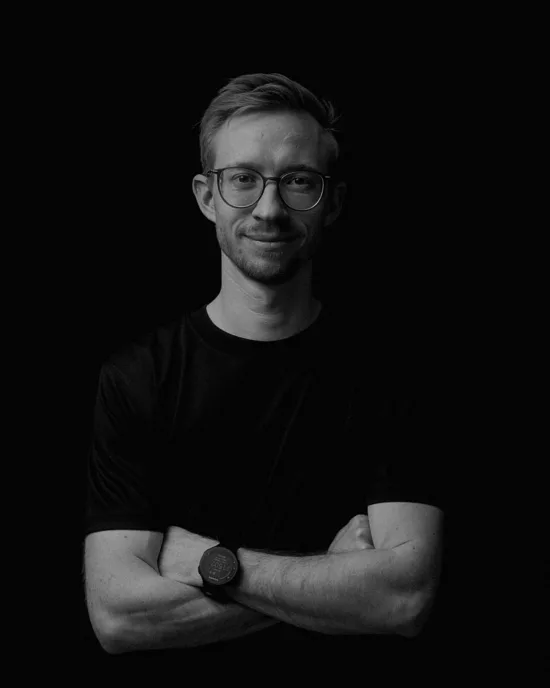
Barista Magazine: What made you decide to compete in Brewers Cup this year? How does it feel to score a win for Austria?
Martin Wölfl: When I first saw a friend of mine competing at a coffee competition, I told myself that competitions are not my thing. I was sure that I would never compete. But some hours later, when I was sitting in the train on my way back home, I remembered that all the competitors were talking about topics like the water or TDS that I literally had no idea about. But I wanted to learn as much as possible and immediately signed in for the next competition.
So, I started to compete to force myself out of my comfort zone and learn new things. My goal was to work closer with producers at origin and the partners of the equipment I was using to understand each of the variables even better. I’m quite sure that we can all learn from each other through competition and grow together. But I also wanted to learn my lessons. When you are competing, you will automatically make a lot of mistakes. But the most important (thing I learned from my mistakes) is not, don’t make one; it’s about learning from the defeats and making yourself better.
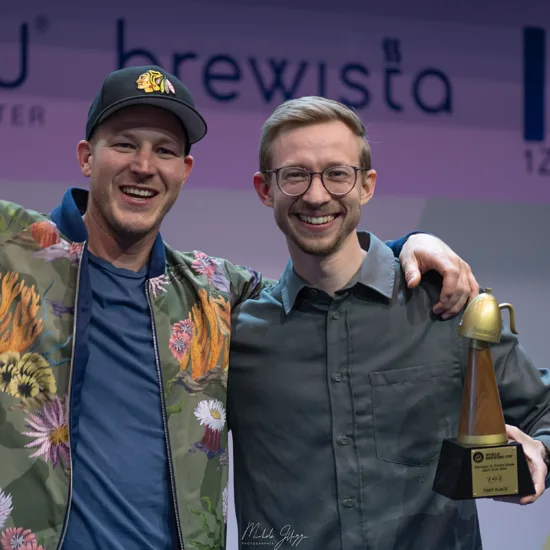
Tell us a bit about the coffee you used, Mario and Margot Guillen’s Finca Maya Gesha from Panama with a two-step fermentation. How did you discover this coffee, and what makes it special?
I first heard about Lost Origin Coffee Lab and Franz when Sam Corra visited me in Vienna in the middle of 2023. Sam is not just the founder of the Link roaster, but he is also very familiar with competition. When I asked him for some advice, he told me about Franz from Lost Origin. So I contacted Franz and told him about the tasting profile I was looking for. He also explained everything he was doing at the Lost Origin lab. At the time I thought I already knew everything about processing, but I was wrong. This was the moment he told me the first time about Finca Maya and the lovely sweet and clean taste.
The biggest challenge was that Finca Maya was harvesting in January and the competition in Chicago took place in April—so the coffee used to be really fresh and it was difficult to get it at the right time. The lot of my competition coffee was just 3 kg (6.6 lbs). I was lucky that a friend of mine got married in Panama and brought 2 kg to Austria. I got the third kg from a friend of Franz, who traveled from Singapore to Panama; I met her in Chicago.
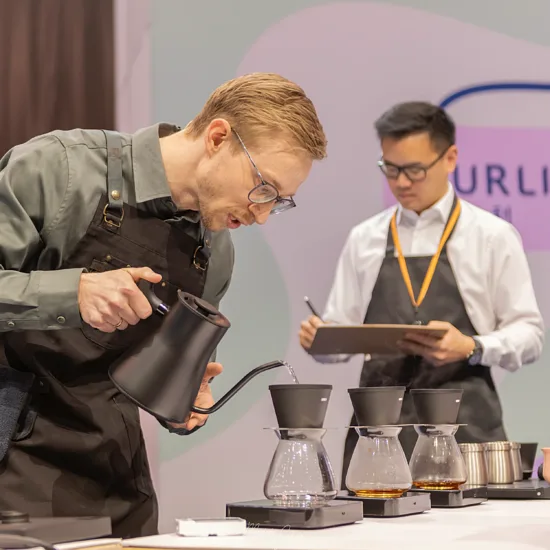
So what makes it special? At Finca Maya the Gesha cherries are just picked at the ripest stage and are well-sorted. Afterwards the cherries went with a truck overnight to the Lost Origin facility in Panama City. At the facility the cherries get washed and disinfected before starting the two-way fermentation. First the cherries are fermented with the yeast Pichia kluyveri and secondly with lactobacteria. Afterwards the cherries remain at the drying room for 33 days to stabilize the moisture content. In each step, every variable like the air, pressure, and temperature is controlled and optimized.
This complex and unique processing method leads to the sweetest, most transparent, clean, balanced, and complex cup of coffee I have ever had.
How did you approach your brewing process?
Over the years I formed my standard recipes. I always used these to brew depending on the processing method, but this is a nonstop process and one of my favourite topics. When it comes to competition I always have a little booklet with me and write down everything I’m doing and what I’ve learned. So this is also a trial and error where you play around.
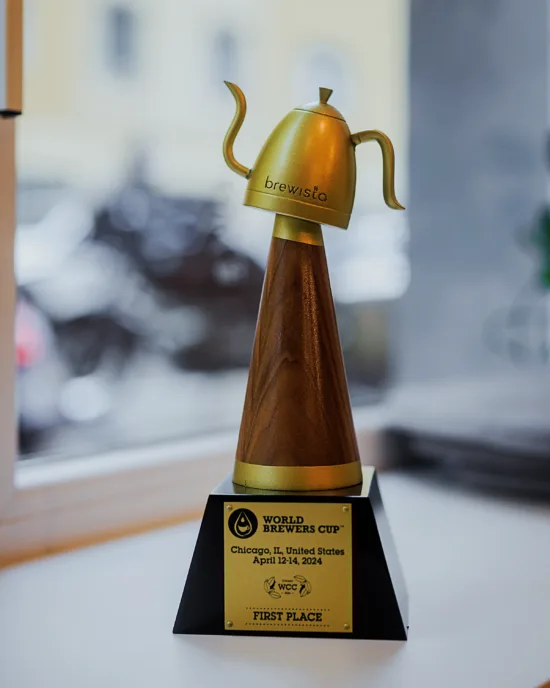
You chose to brew with the OREA Brewer V4. Why did you choose a faster extraction method for your coffee, and how did it affect the brew?
In general I was aiming for a clean, sweet, transparent, well-balanced, and medium-intense cup. And during my testings I found out that I could find this characteristic with fast extractions. So the combination of the OREA V4 and the paper filter from Sibarist was the perfect mix. As I already brewed with the OREA and Sibarist for the last couple of years, I was also quite familiar with the brewer.
Stay tuned for part two of our interview with Martin Wölfl, where we will discuss his performance, future plans, and the team of people who helped him reach the top.
ABOUT THE AUTHOR
J. Marie Carlan (she/they) is the online editor for Barista Magazine. She’s been a barista for 16 years and writing since she was old enough to hold a pencil. When she’s not behind the espresso bar or toiling over content, you can find her perusing record stores, writing poetry, and trying to keep the plants alive in her Denver apartment.
Subscribe and More!
Out now: It’s the June + July 2024 issue of Barista Magazine! Read it for free with our digital edition. And for more than three years’ worth of issues, visit our digital edition archives here.
You can order a hard copy of the magazine through our online store here, or start a subscription for one year or two.



